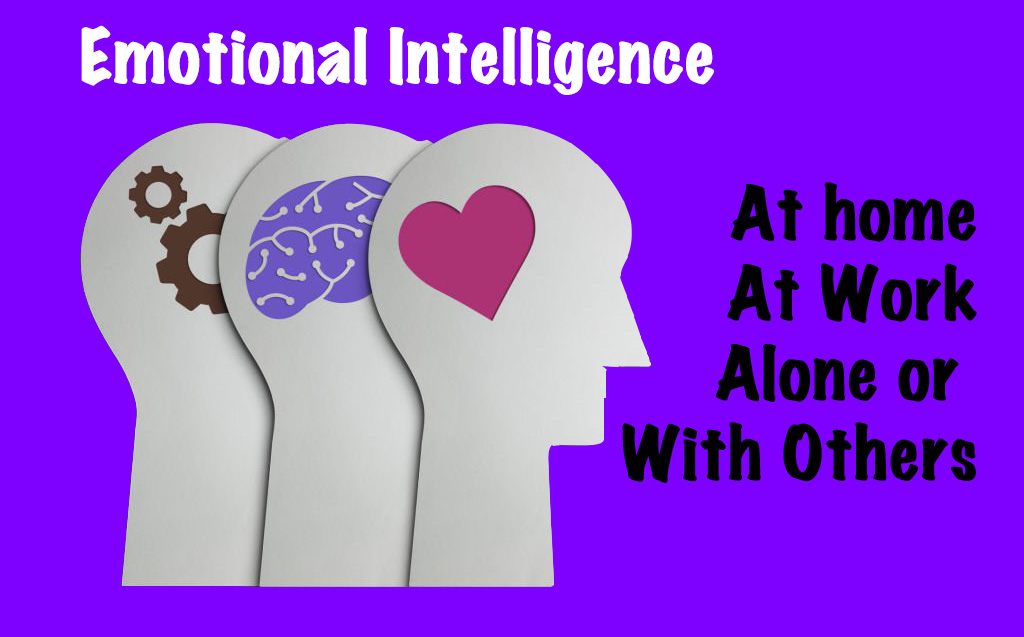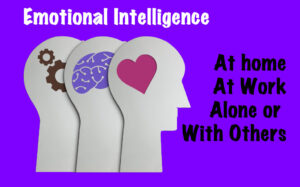For an agent, emotional intelligence (EI) isn’t just a tool for sales—it’s a framework for life. The same skills that help you navigate client relationships, set boundaries, and close deals also shape how you manage personal relationships, handle stress, and maintain work-life balance.
The life of a REALTOR® is fast-paced, demanding, and emotionally charged. You juggle deals, negotiations, client expectations, and personal commitments—all while trying to maintain a sense of self. The good news? The EI skills you develop for business don’t just stay at work; they extend into your everyday life, improving your personal relationships, self-care, and emotional well-being.
Self-Regard: The Foundation of Confidence
Self-regard—the ability to recognize and respect your own value—is the backbone of success in both real estate and life. In business, self-regard allows you to confidently communicate your expertise, set professional boundaries, and navigate negotiations. But it’s just as essential in your personal life.
The same confidence that enables you to stand firm on commission rates helps you set boundaries with family and friends. A strong sense of self-worth ensures that you say no when needed, advocate for yourself, and protect your time and energy. By developing self-regard in your professional life, you naturally strengthen it in your personal life, leading to healthier relationships and a greater sense of fulfillment.
Setting Boundaries: Clients, Friends, and Family
As a realtor, you know that clear boundaries with clients create respect and efficiency. You define working hours, set expectations, and ensure that both parties understand each other’s roles. But what about your personal life?
Without boundaries, burnout is inevitable. Just as you establish professional boundaries, it’s essential to do the same with family and friends. That might mean declining last-minute social plans when you need rest or communicating openly about what you can and can’t handle emotionally. Your ability to set clear boundaries in business translates seamlessly into your personal relationships, creating balance and preventing resentment.
Self-Expression: The Power of Communication
In real estate, communication is everything. Whether you’re negotiating an offer or reassuring a nervous buyer, your ability to express thoughts and emotions effectively determines the outcome. But this skill isn’t just for work—it’s also crucial in your personal life.
Bottling up emotions leads to stress, miscommunication, and tension in relationships. The same self-expression skills you use to communicate openly with clients can help you navigate conflicts with loved ones, express your needs, and foster deeper connections. Learning how to articulate your thoughts and emotions in a professional setting teaches you to do the same in personal relationships, strengthening trust and understanding.
Stress Management & Work-Life Balance
A career in real estate is demanding, often blending work into personal time. Managing stress effectively is a necessity. The ability to regulate emotions, stay calm under pressure, and separate work stress from personal life is essential for long-term success and well-being.
Just as you create systems to manage your business, you need systems to manage your life. Scheduling downtime, setting priorities, and engaging in self-care are non-negotiable. The stress management techniques you practice in real estate—whether it’s deep breathing before a negotiation or taking a step back to gain perspective—can and should be applied in your personal life. The better you are at managing stress in business, the more resilient and balanced you become in all areas of life.
Adaptability/Flexibility: Thriving in Uncertainty
Real estate professionals are no strangers to change. The market fluctuates, deals fall through, and unexpected challenges arise daily. The ability to adapt quickly and problem-solve under pressure is what separates top agents from the rest.
This adaptability extends into personal life as well. Relationships, family dynamics, and unforeseen life events require the same flexibility you use in business. Learning to pivot, embrace change, and stay composed in uncertain situations helps you navigate both professional and personal challenges with confidence and ease.
Active Listening: Strengthening All Relationships
Realtors spend a significant amount of time listening—to clients’ needs, concerns, and aspirations. Active listening helps close deals and build strong client relationships, but its benefits go far beyond business.
In personal relationships, active listening fosters deeper connections, reduces misunderstandings, and strengthens trust. Whether it’s truly hearing a partner’s concerns or being present for a friend, the same skills that make you a trusted real estate professional can make you a more compassionate and effective communicator in your personal life.
Decision-Making Under Pressure
Every day, realtors make high-stakes decisions—whether it’s advising a client on a deal, adjusting marketing strategies, or negotiating terms. This ability to make informed, confident decisions under pressure is a valuable skill that translates directly into personal life.
From handling financial decisions to navigating personal conflicts, decision-making is a fundamental part of life. The confidence and critical thinking developed in real estate help you make clear-headed, rational choices even in emotionally charged situations.
The Takeaway: EI is Life, Not Just Work
Emotional intelligence isn’t just a business strategy—it’s a life strategy. The skills you refine in real estate don’t stay in the office; they influence how you interact with the world. From self-regard and boundary-setting to self-expression, stress management, adaptability, and active listening, the emotional intelligence you build in your professional life enhances your personal life in countless ways.
So the next time you master a difficult negotiation, set a firm boundary with a client, or express yourself with clarity, remember—you’re not just becoming a better realtor. You’re becoming a more emotionally intelligent person, and that benefits every aspect of your life.
Are you ready to develop EI skills that go beyond real estate? Learn how our EI coaching program can help you thrive in both business and life. Contact me today to start your journey toward becoming the ultimate real estate professional.







